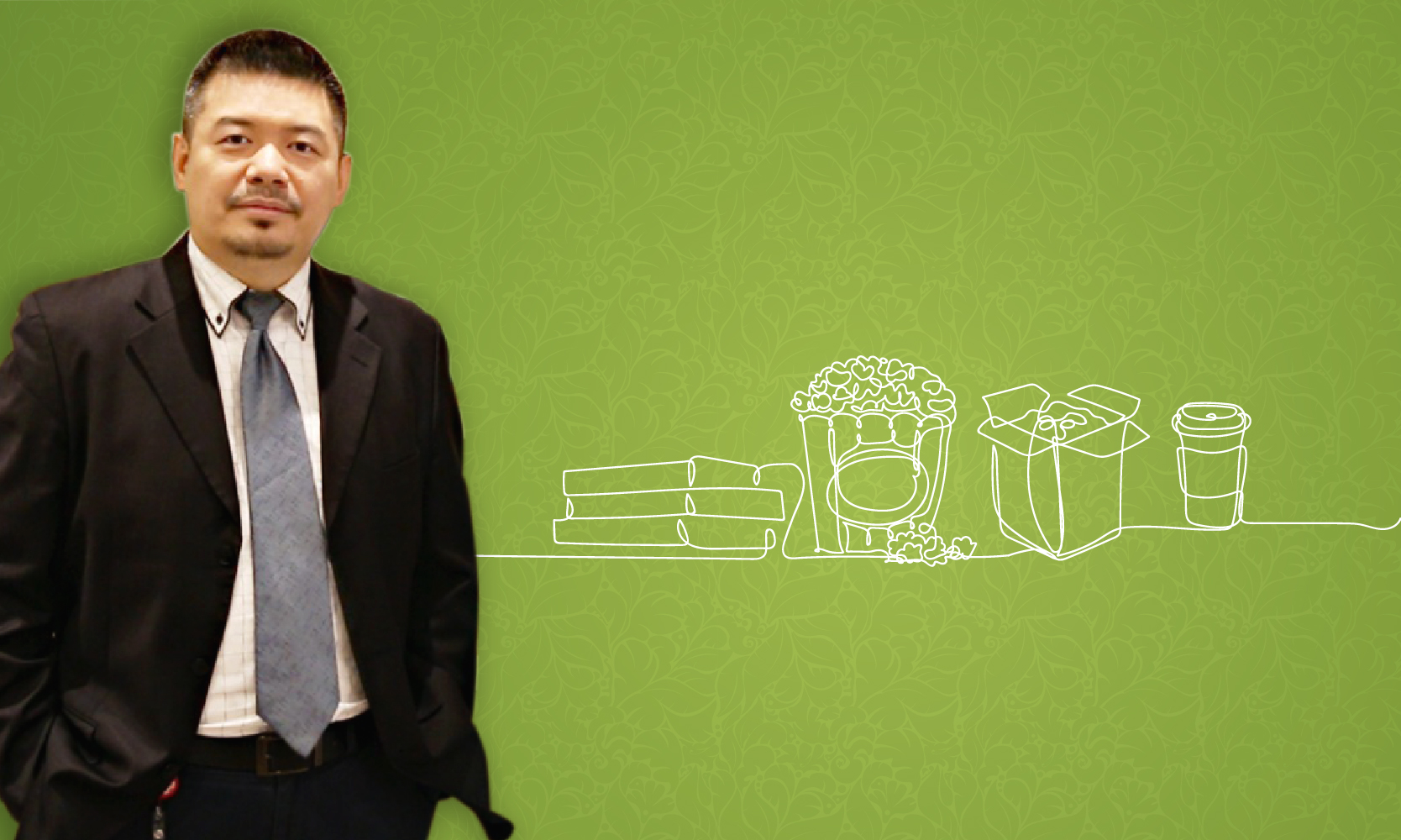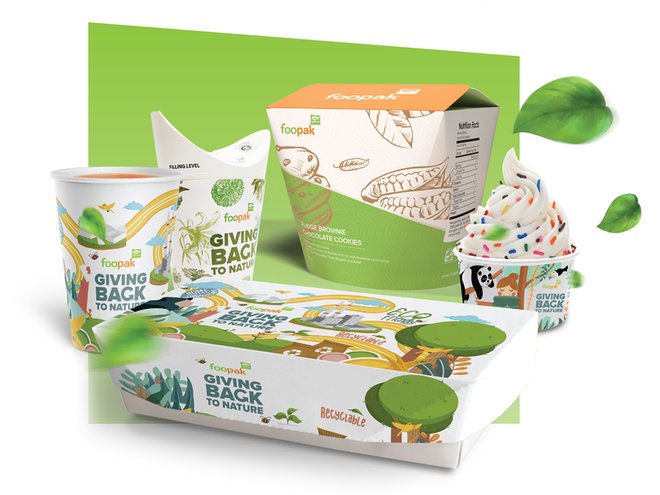
We caught up with Christopher Wong, SVP and global business unit head for industrial paper at Asia Pulp & Paper, for our latest Rapid Interview.
Your elevator pitch: introduce and sell us your company
Asia Pulp & Paper (APP) Sinar Mas is a pulp and paper manufacturing company that delivers quality products to meet growing global demand for paper, tissue, and packaging. With an annual pulp, paper, and packaging capacity of more than 20 million tons, the company markets its products in more than 150 countries.
This growth is guided by our vision of a better future. Part of that vision is the integrity of our supply chain and our commitments to our Sustainability Roadmap Vision 2030.
Every day, we strive to achieve sustainable forest and peatland management, develop market-leading products and minimize our environmental footprints in a people-first sustainable operation.
The growth of our business is dependent on the support of the people around us: partners, employees, communities, and you. Together, we are growing our tomorrow.
Where are your company’s locations? Are there any specific challenges or advantages relating to your geographical location that you could tell us about?
As one of the largest archipelagos in the world, comprising of 17,000 islands, Indonesia is more vulnerable than most countries to the ever-changing climate. These include sea levels rising, as well as extreme droughts, forest fires, and flooding.
Climate change has since been identified as a major challenge to the continuity of our business as well as the environment, and APP has implemented various climate change mitigation and adaptation measures, under the umbrella of APP Sustainability Roadmap and APP Forest Conservation Policy (FCP).
Vision 2030 focuses on three main pillars related to our industry, which are production (30% overall reduction in our carbon footprint), forest conservation (comprising of over half a million hectares of primary natural forest), and also people (improving lives), in alignment with The Sustainable Development Goals (SDGs).
Tell us a surprising fact about the market you work in
The European paper recycling rate is currently at 72%, this varies from country to country but is an overall European statistic. Paper can be recycled up to 7 times.
At Packaging Europe, we like to watch trends and areas of innovation as they evolve. Can you tell us something we might not be aware of that is driving technology in your sphere?
Overall, a surprising fact that our research has revealed is that consumers are driving sustainable sourcing. Since 2017, paper-based packaging consumption has grown nearly 20%. The sector is forecasted to reach over USD 108 Billion, with an estimated 81 million metric tons expected to be produced by the end of 2021.
Driving this massive consumption rate are services like Amazon, Uber Eats, and other delivery platforms, which have grown nearly 10% over the past year. At the same time, consumer environmental awareness and demand for sustainable products and packaging have increased.
This general awareness is being reflected by the move away from single-use plastics has escalated and as such we are developing products such as Foopak Bio Natura in the EU, our range of recyclable food packaging.
Foopak Bio Natura has outstanding moisture and liquid resistance and is fully recyclable, industrial and home compostable, and biodegradable. A paperboard engineered with unique multi-layer, plastic-free coatings especially designed and refined to package food and drink.

What would you say is the biggest common misconception that you encounter in your business?
Paper and packaging are generally still misunderstood in terms of their environmental credentials and overall sustainability qualities within the marketplace.
The paper and packaging supply chain has made a huge effort over the last 20 years to be fully sustainable and there are several facets. Certified, well-managed forestry, responsible production processes, efficient use of materials-while still maintaining the integrity of the product, the ability to separate the product after use, then turning the raw material into the next phase of recycled pulp to go into the next product. All of these elements are key in the life of the raw material.
If the wider packaging industry could be transformed in some way, what kind of change would you like to see?
There is a role for global consumer brands to play within their supply chain, whereby supply chain transparency can transform to supply chain engagement. As packaging continues to grow, retail brands can take an active role by supporting the communities, workers, and land within their supply chain.
It’s these brands that can be a driver of change by partnering with their suppliers and developing new sustainable standards and programs. In turn, these programs can become a value proposition to attract, secure, and retain those sustainably-minded customers and capture that growing revenue.
In terms of all raw materials, paper is often used in conjunction with other materials, and brands and retailers have a key role to play in developing a product with the end of its life in mind. So, bringing the suppliers together, to ensure the materials are not only from well-managed sources but also able to be separated after use.
…and how do you envisage your company changing the industry in the coming years?
APP has turned to technology to deliver unprecedented transparency within the pulp & paper sector. In July 2020 APP launched its publicly accessible dashboard, making its Forest Alert Service (FAS) data available for full public access.
This online resource uses near real-time satellite imagery to provide pulp, paper, and packaging buyers with a complete overview of APP’s pulpwood suppliers concession areas, providing access and visibility into the entire supply chain, where they can monitor and track any forest degradation or protected areas, and build the confidence needed to ensure a sustainable sourcing model. It would be great if the paper and packaging industry as a whole looked at tools such as this, to be implemented for full transparency.
In the past, APP has been criticised by NGOs for its actions regarding its deforestation activities and relationships with indigenous communities. Could you give us your thoughts on these accusations, and let us know about how APP will be acting more sustainably now/in the future?
On February the 5th, 2013, APP launched its forest conservation policy (FCP) which is based on four solid pillars beginning with the commitment of zero deforestation. It is also focused on the protection and rehabilitation of peatlands; the implementation of Free, Prior and Informed Consent (FPIC) and social principles in dealing with communities around our concession areas; and the enforcement of sustainable sourcing policies throughout our operations.
The result of this commitment means that today APP has achieved 0.014% natural forest clearance and through our sustainable livelihoods program helped to build resilience both for now and the future for 350 villages/8000 households. The role of the private sector is critical to the continued preservation of the landscape and its people.
All our products are sourced from 100% responsibly managed plantations with clear traceability between the pulpwood and the manufacturing mills can be followed on APP’s FCP Monitoring Dashboard. We have identified, conserved, and continue to protect over 20% of our pulpwood suppliers’ gross concession area. This is equivalent to over 600,000ha across five regions in Indonesia.
Looking to the future, APP’s Sustainability Roadmap Vision 2030 focuses on three main pillars related to our industry which are production (30% reduction in carbon footprint), forest (conserving over half a million hectares of natural forest), and people (improving lives) and are aligned with The Sustainable Development Goals (SDGs).
APP also serves as an Indonesia Global Compact Network Board of Founders, VP of Environment and Chair of Indonesia Water Mandate Working Group. Moreover, APP are a member of the Consumer Goods Forum working group on the Forest Positive Coalition, Human Rights as well as the Sustainable Supply Chain Initiative.
APP’s Sustainability Commitments implementation progress and challenges are regularly updated through the annual Stakeholders Advisory Forum. It is clear that we cannot do it all alone, and remain open for constructive engagements and dialogues with interested parties to support our commitment to zero deforestation and respect indigenous people’s rights, relevant with APP Forest Conservation Policy. For previous progress update reports and responses to specific allegations, please refer to https://app.co.id/sustainability.
***
This article is also available on https://packagingeurope.com/the-rapid-interview-with-asia-pulp-and-paper/
